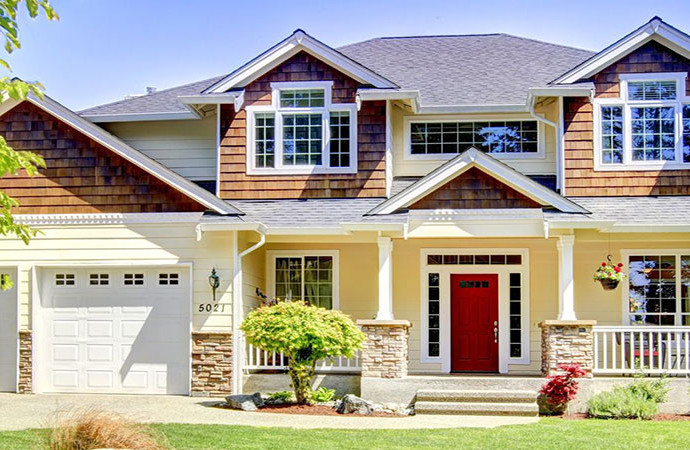Replacement of vinyl windows in Mississauga area – bay and bow windows, casement windows, awnings and sliding windows, single and double hung windows.
No matter if your windows are just a few years or over a decade old, their performance ultimately influences how much you pay for heating and cooling. Older models, with dual-pane glass, tend to let heat and air escape – as much as 30 percent, in some cases. Other factors contribute to poor-performing windows, such as the following:
Poor Installation
A replacement window may be a top-of-the-line product, but poor installation ultimately undermines its full potential. While do-it-yourself projects may be the culprit, professionals have potential to execute a less-than-stellar job.
What can happen from poor installation? When a window or door isn’t added with precision, gaps, cracks, or spaces are present between the fixture and the rest of the home. While for heating and cooling, these gaps form a clear pathway for air to escape, and they bring in elements from the outdoors – specifically, UV rays that have potential to fade fabrics and damage furniture and moisture that can cause mold or mildew to form. Beyond higher bills, repairs may be essential to your home’s interior.
Radiation, Conduction, and Convection
Certain materials retain heat and air better than others. Because of this, less-conductive materials and features are added to modern replacement windows. Specifically, this includes glaze, which traps gas like argon between panes to reduce heat transfer, and thermally-resistant edge spacers on the frame.
Conduction isn’t the only natural process stopped by improved materials. Glass further halts radiation, the process in which heat, as infrared energy, passes through the glass, and convection, or what happens when air cools near the windows, becomes denser, and travels downward.
Air Leakage
Going hand in hand with older materials and poor installation is air leakage – the most common reason a home continues to see higher cooling and heating bills. Multiple factors contribute, and before fully replacing a window, a homeowner has multiple options: replace the weather stripping, add a closing device that blocks air leakage, or tighten any joints. If air continues to escape, a hinged or casement window – any design that clamps down against weather stripping – often provides better performance.
Old Glass
Simple dual-pane windows of yesterday no longer the best when it comes to energy efficiency. As a result, low-emissivity, or simply low-E, glass is becoming a standard for replacement windows and even doors. This option reflects heat’s energy while admitting visible light, keeping the home cool in summer and warm in winter.

